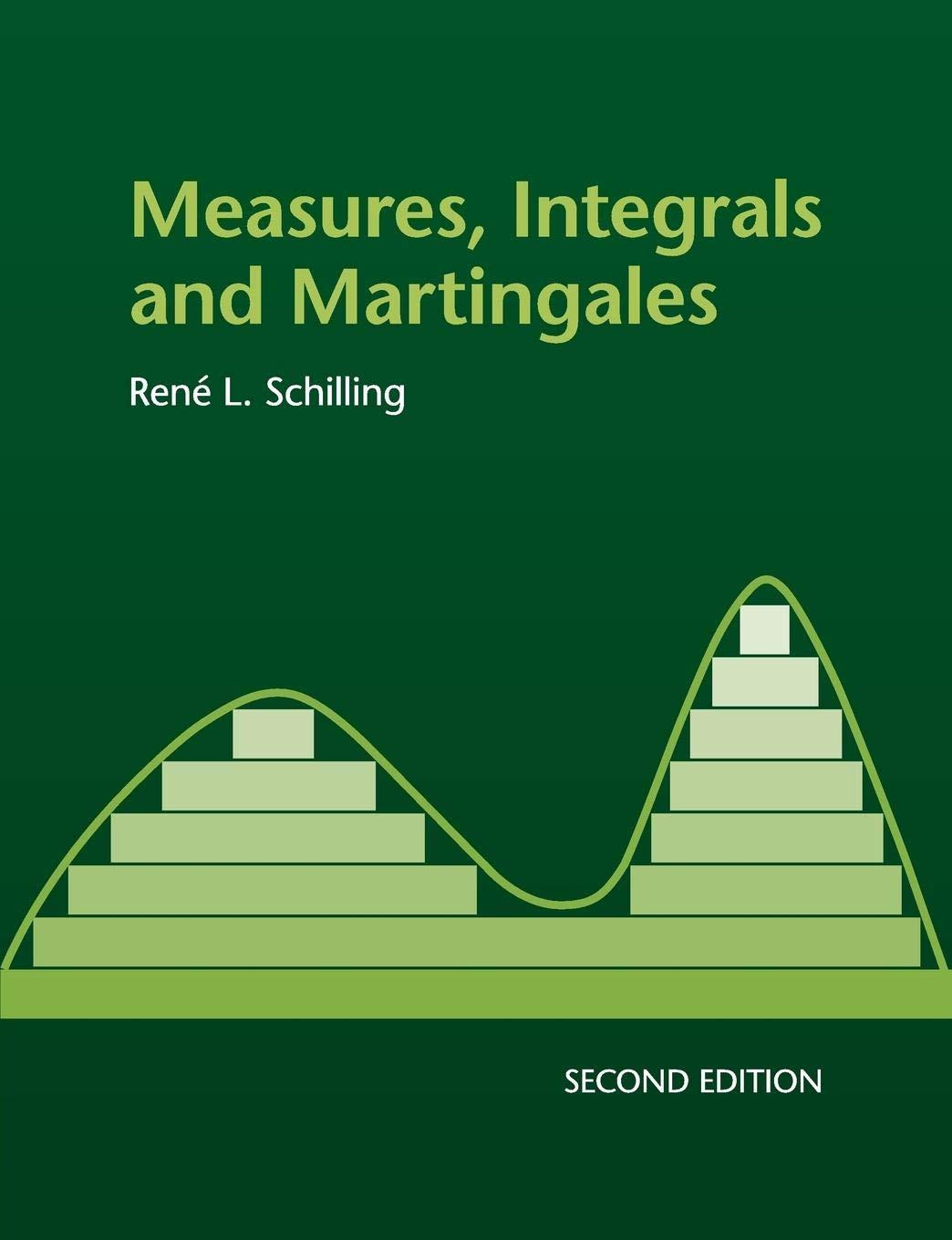Completion (3). Let ((X, overline{mathscr{A}}, bar{mu})) be the completion of ((X, mathscr{A}, mu)), see Problems 4.15 ,
Question:
Completion (3). Let \((X, \overline{\mathscr{A}}, \bar{\mu})\) be the completion of \((X, \mathscr{A}, \mu)\), see Problems 4.15 , and 6.4.
(i) Show that for every \(f^{*} \in \mathcal{E}^{+}(\overline{\mathscr{A}})\) there are \(f, g \in \mathcal{E}^{+}(\mathscr{A})\) with \(f \leqslant f^{*} \leqslant g\) and \(\mu(f eq g)=0\) as well as \(\int f d \mu=\int f^{*} d \bar{\mu}=\int g d \mu\).
(ii) Show that \(u^{*}: X ightarrow \mathbb{R}\) is \(\overline{\mathscr{A}}\)-measurable if, and only if, there exist \(\mathscr{A}\)-measurable functions \(u, w: X ightarrow \overline{\mathbb{R}}\) with \(u \leqslant u^{*} \leqslant w\) and \(u=w \mu\)-a.e.
(iii) Show that \(u^{*} \in \mathcal{L}^{1}(\bar{\mu})\), then \(u, w\) from (ii) can be chosen from \(\mathcal{L}^{1}(\mu)\) such that \(\int u d \mu=\) \(\int u^{*} d \bar{\mu}=\int w d \mu\).
[(i) use Problem 4.15(v). (ii) for ' \(\Rightarrow\) ' consider \(\left\{u^{*}>\alphaight\}\) and use Problem 4.15(v). The other direction is harder. For this consider first step functions using again Problem 4.15(v) and then general functions by monotone convergence. (iii) by Problem 4.15(iii), \(\mu=\bar{\mu}\) on \(\mathscr{A}\), and thus \(\int f d \mu=\int f d \bar{\mu}\) for \(\mathscr{A}\)-measurable \(f\).]
Data from problem 4.15

Data from problem 6.4


Step by Step Answer:






